Agkistrodon Contortrix
$450.00 – $2,600.00
Description
Agkistrodon contortrix Venom, individuals are known for their distinctive reddish-brown bodies with a crossband pattern consisting of tan, copper, and rich brown colors that extend throughout the body. Adult copperheads average 76 cm in length and are normally described as heavy-bodied snakes. Copperheads are sexually dimorphic, as males tend to have longer bodies than females.
The head is very distinct from the rest of the body and has a solid, rich brown color. Temperature-sensitive pit organs are present below the midline between the eye and the nostril. Although copperheads are venomous, their venom is somewhat mild compared to other snake species and is usually not fatal to healthy human adults.
Juveniles have very similar crossband patterns as adults but are much grayer in color. Besides their color differences, juveniles also have a yellow tinted tail tip until they reach the age of 3 to 4 years. The tinted tail is also found in other Agkistrodon species (Cottonmouth, Agkistrodon piscivorus, for example) and appears to be used to lure small prey within striking distance by mimicking caterpillar movements. Juveniles and adults have fully functioning fangs that can deliver proportionately equal amounts of venom to their prey. Buy Agkistrodon Contortrix Venom Online – Reptile Venom Shop
The broad geographic range of A. contortrix is associated with an array of habitats in which they occur. In the northeast and Appalachians they are typically found in deciduous forests and open woodlands with rock outcrops and hilly terrain. Areas with downed woody vegetation are also favored. On the southern coastal plain, they can be found in low, wet woodlands including the edges of swamps.
Further west, they are associated with riparian areas in mixed woodlands with stream beds and arroyos. They also associate with man-made environments including construction areas, sawdust piles, and suburban neighborhoods. Their close proximity with humans likely contributes to their status as the snake species with the highest number of bites within the United States.
Overwintering sites are often south- or west-facing and include rock crevices, abandoned mines, caves, hollow logs, stumps, and building foundations. Gravid females also tend to use such sites and prefer microhabitats with higher temperature profiles.
General Shape
Medium in length, moderately stout bodied snake with a moderately short to short, rapidly tapering tail that terminates with a moderately long caudal spine. Can grow to a maximum of about 1.32 metres. Head is broad, flattened, triangular and distinct from neck. Canthus rostralis is prominent. Eyes are medium in size with vertically elliptical pupils. Dorsal scales are keeled. Caudal spine is curved downwards.
Habitat
Timbered foothills with rocky outcrops above waterways, near canyon springs, irrigated crops or near swamps, marshes and periodically flooded coastal plains.
Habits
Mainly a terrestrial snake, but will freely enter the water. Basks during the day in spring and autumn, mainly nocturnal during summer, returning to the den in late autumn. Den sites are often rocky outcrops on hillsides. Prefers cooler or moist retreats in summer such as stone walls, rubbish or sawdust heaps, abandoned farms, rotting logs and smooth rocks near waterways.
Prey
Feeds mainly on lizards, frogs, small rodents, large caterpillars and cicadas. Juveniles twitch their yellowish or greenish tipped tail to lure prey
Description: First aid for bites by Viperid snakes likely to cause significant local injury at the bite site (see listing in Comments section).
Details, Agkistrodon contortrix Venom
1. After ensuring the patient and onlookers have moved out of range of further strikes by the snake, the bitten person should be reassured and persuaded to lie down and remain still. Many will be terrified, fearing sudden death and, in this mood, they may behave irrationally or even hysterically. The basis for reassurance is the fact that many venomous bites do not result in envenoming, the relatively slow progression to severe envenoming (hours following elapid bites, days following viper bites) and the effectiveness of modern medical treatment.
2. The bite wound should not be tampered with in any way. Wiping it once with a damp cloth to remove surface venom is unlikely to do much harm (or good) but the wound must not be massaged.
3. All rings or other jewellery on the bitten limb, especially on fingers, should be removed, as they may act as tourniquets if oedema develops.
4. The bitten limb should be immobilised as effectively as possible using an extemporized splint or sling; if available, crepe bandaging of the splinted limb is an effective form of immobilization.
5. If there is any impairment of vital functions, such as problems with respiration, airway, circulation, heart function, these must be supported as a priority. In particular, for bites causing flaccid paralysis, including respiratory paralysis, both airway and respiration may be impaired, requiring urgent and prolonged treatment, which may include the mouth to mask (mouth to mouth) technique of expired air transfer. Seek urgent medical attention.
6. Do not use Tourniquets, cut, suck or scarify the wound or apply chemicals or electric shock.
7. Avoid peroral intake, absolutely no alcohol. No sedatives outside hospital. If there will be considerable delay before reaching medical aid, measured in several hours to days, then give clear fluids by mouth to prevent dehydration.
8. If the offending snake has been killed it should be brought with the patient for identification (only relevant in areas where there are more than one naturally occurring venomous snake species), but be careful to avoid touching the head, as even a dead snake can envenom. No attempt should be made to pursue the snake into the undergrowth as this will risk further bites.
9. The snakebite victim should be transported as quickly and as passively as possible to the nearest place where they can be seen by a medically-trained person (health station, dispensary, clinic or hospital). The bitten limb must not be exercised as muscular contraction will promote systemic absorption of venom. If no motor vehicle or boat is available, the patient can be carried on a stretcher or hurdle, on the pillion or crossbar of a bicycle or on someone’s back. Buy Agkistrodon Contortrix Venom Online
10. Most traditional, and many of the more recently fashionable, first aid measures are useless and potentially dangerous. These include local cauterization, incision, excision, amputation, suction by mouth, vacuum pump or syringe, combined incision and suction (venom apparatus), injection or instillation of compounds such as potassium permanganate, phenol (carbolic soap) and trypsin, application of electric shocks or ice (cryotherapy), use of traditional herbal, folk and other remedies including the ingestion of emetic plant products and parts of the snake, multiple incisions, tattooing and so on.
Treatment Summary
Bites by Agkistrodon species vary from only minor local effects to moderate, rarely severe local effects, the latter potentially including hypovolaemic shock. Major systemic effects are likely to be confined to coagulopathy, though systemic myolysis is a theoretical risk, but not paralysis. Cases with major local or systemic envenoming should receive antivenom IV.
Key Diagnostic Features
Local pain, swelling, ecchymosis ± coagulopathy & haemorrhage
General Approach to Management
All cases should be treated as urgent & potentially lethal. Rapid assessment & commencement of treatment including appropriate antivenom (if indicated & available) is mandatory. Admit all cases.
Antivenom Therapy
Only antivenoms available are for related species, but should be used for significant envenoming
Additional information
| Quantity | 1 gram, 10 grams, 3 grams, 5 grams |
|---|

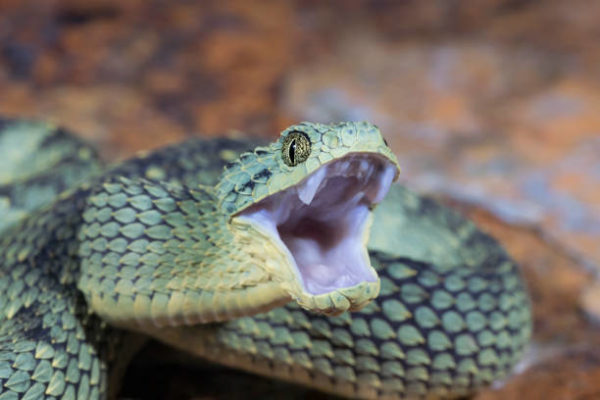
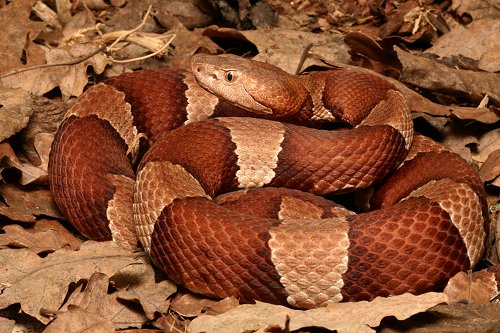
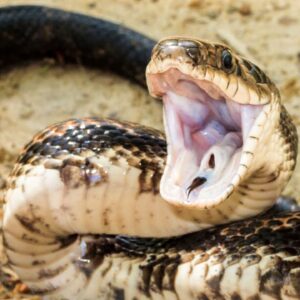
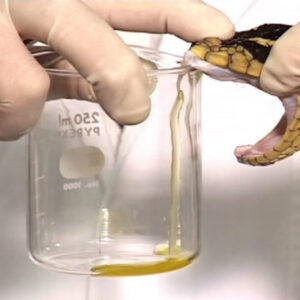
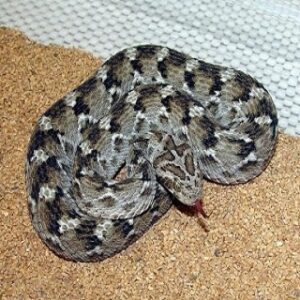
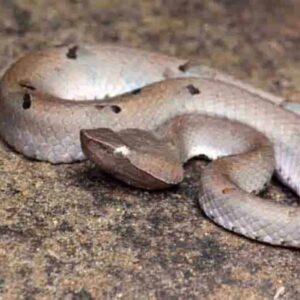
Reviews
There are no reviews yet.